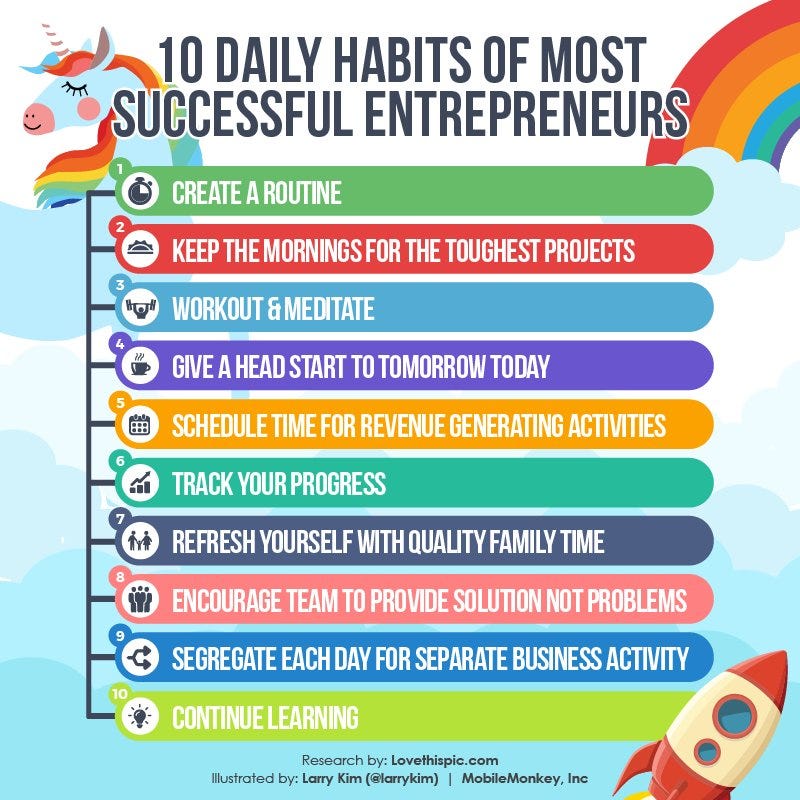3 Things That Make A Business Successful

In a landscape littered with startups and established giants alike, the question of what truly constitutes business success remains a subject of intense debate. While luck and timing undoubtedly play a role, a deeper examination reveals that certain fundamental principles consistently underpin thriving enterprises.
Beyond the headlines of overnight success stories, this article delves into three core pillars that, according to both academic research and real-world experience, are crucial for building a sustainable and prosperous business: a customer-centric approach, a strong and adaptable organizational culture, and a commitment to continuous innovation.
Customer-Centricity: The North Star
At the heart of every successful business lies a relentless focus on the customer. Peter Drucker's famous quote, "The purpose of a business is to create and keep a customer," resonates even more strongly in today's hyper-competitive market.
This goes beyond simply providing good customer service. It requires a deep understanding of customer needs, preferences, and pain points. Businesses must actively solicit feedback, analyze data, and adapt their products and services to meet evolving customer demands.
According to a study by Deloitte, customer-centric companies are 60% more profitable than companies that are not. This profitability stems from increased customer loyalty, higher customer lifetime value, and positive word-of-mouth referrals.
"It's no longer about selling products, it's about building relationships," explains Maria Rodriguez, a marketing consultant specializing in customer experience. "Companies that prioritize understanding and serving their customers are the ones who will thrive in the long run."
Beyond Transactions: Building Relationships
Customer-centricity extends beyond mere transactions. It involves building genuine relationships with customers, fostering a sense of community, and providing personalized experiences.
Companies like Zappos, renowned for its exceptional customer service, have built a loyal following by empowering employees to go above and beyond to meet customer needs. This approach not only fosters customer satisfaction but also cultivates a positive brand image.
Furthermore, customer feedback should be actively incorporated into product development and business strategy. This ensures that the company remains aligned with customer needs and continues to deliver value.
Organizational Culture: The Internal Compass
A strong and adaptable organizational culture is another critical ingredient for business success. This culture shapes employee behavior, fosters collaboration, and drives innovation.
A positive organizational culture is characterized by trust, transparency, and a shared sense of purpose. Employees feel valued, empowered, and motivated to contribute their best work.
Research from Harvard Business Review indicates that companies with strong cultures experience lower employee turnover, higher productivity, and increased profitability.
"Culture eats strategy for breakfast," Peter Drucker famously stated. This highlights the importance of creating a culture that supports and reinforces the company's strategic goals.
Adaptability: Navigating Change
In today's rapidly changing business environment, adaptability is paramount. A strong organizational culture should foster a willingness to embrace change, experiment with new ideas, and learn from mistakes.
Companies that are resistant to change risk becoming obsolete. A flexible and adaptable culture allows businesses to navigate uncertainty and capitalize on new opportunities.
This requires a commitment to continuous learning, open communication, and a willingness to challenge the status quo. Leaders must create an environment where employees feel comfortable taking risks and sharing new ideas.
Continuous Innovation: The Engine of Growth
Finally, a commitment to continuous innovation is essential for long-term business success. Innovation allows businesses to stay ahead of the competition, create new value for customers, and adapt to changing market conditions.
Innovation is not limited to product development. It can also encompass process improvements, business model innovation, and new marketing strategies.
According to a report by PwC, companies that invest in innovation are more likely to experience higher revenue growth and increased market share.
"Innovation distinguishes between a leader and a follower," Steve Jobs famously said. This underscores the importance of fostering a culture of innovation and encouraging employees to think creatively.
Fostering a Culture of Innovation
Creating a culture of innovation requires a multi-faceted approach. This includes investing in research and development, encouraging experimentation, and rewarding creativity.
Companies should also foster collaboration between different departments and teams to facilitate the exchange of ideas. Open communication and a willingness to embrace failure are also crucial.
Furthermore, businesses should actively seek out new ideas and technologies from external sources, such as universities, startups, and research institutions.
The Road Ahead
While numerous factors contribute to business success, a customer-centric approach, a strong and adaptable organizational culture, and a commitment to continuous innovation are fundamental pillars that underpin thriving enterprises. By prioritizing these principles, businesses can increase their chances of achieving sustainable growth and long-term prosperity.
The future of business belongs to those who are willing to embrace change, adapt to evolving customer needs, and foster a culture of innovation. The journey may be challenging, but the rewards are well worth the effort.

















